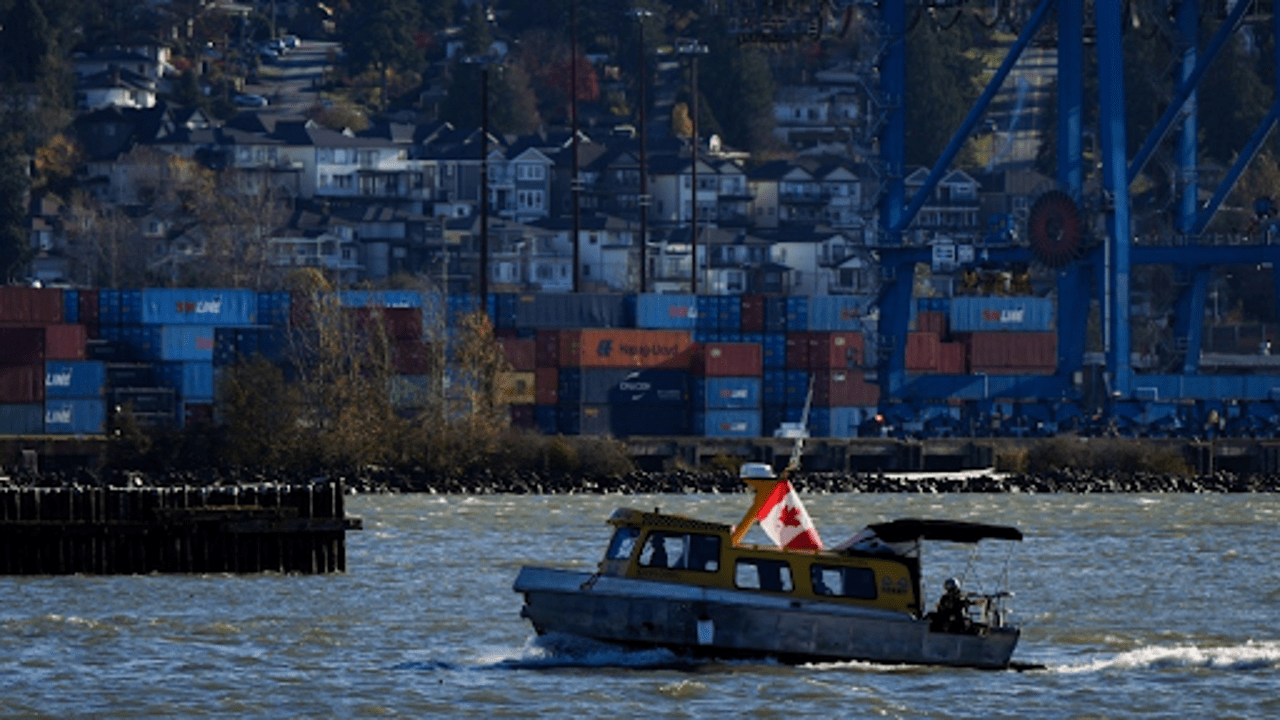
A water taxi travels on the Fraser River past gantry cranes sitting idle at the Fraser Surrey Docks, in Surrey, B.C., Monday. THE CANADIAN PRESS/Darryl Dyck
A recent work stoppage at British Columbia's ports has added to a series of supply chain interruptions impacting Canadian businesses and the broader economy. On Monday, port employers across the province locked out around 700 unionized foremen, represented by the International Longshore and Warehouse Union Local 514, after negotiations stalled. These workers have been without a contract since March 2023.
This disruption is the latest in a string of labor conflicts affecting Canada’s transport infrastructure. Less than 18 months ago, a 13-day strike at B.C. port terminals and more recent work stoppages at Canada’s two major railways disrupted trade and strained the economy. Concerns are mounting over Canada’s reputation as a reliable trading partner, with the Canadian Chamber of Commerce warning that repeated labor issues could hurt its standing in global markets.
Pascal Chan, the Chamber’s senior director of transportation, infrastructure, and construction, emphasized that consistent closures of critical West Coast ports would have seemed improbable just a few years ago. "The resulting damage to trade and our economy is another blow to Canadian workers and businesses," Chan said.
The economic impact of the B.C. port shutdown could be severe. Bridgitte Anderson, president of the Greater Vancouver Board of Trade, highlighted that $800 million worth of goods pass through Vancouver’s ports daily, warning that extended disruptions could contribute to rising inflation.
Fraser Johnson, a professor at Western University's Ivey Business School, underscored the importance of Vancouver’s port, which handles about 45% of Canada’s total port volume. Johnson pointed out that the timing of the disruption, so close to the holiday season, could intensify its effects on the import of consumer goods, electronics, and automobiles. But it’s not just imports that are at stake. Key exports like lumber, coal, and iron ore are also routed through these ports, affecting a broad range of industries.
The Canadian Manufacturers and Exporters reported that the 2023 B.C. port strike cost manufacturers an average of $207,000 daily. Dennis Darby, the group’s president, called for swift government intervention to end the current standoff. Johnson noted that, while the federal government played a limited role in resolving the previous port dispute, it did intervene during a rail work stoppage by requesting binding arbitration through the Canada Industrial Relations Board.
Rail transport, Johnson pointed out, remains central to Canada’s supply chain and is even more critical than port operations, as rail lines are essential for moving products that affect daily consumer goods. "A rail disruption would have a much more significant economic impact and be felt by consumers directly," he added.
Fertilizer Canada echoed these concerns, stressing that port closures would seriously affect potash exports. A prolonged stoppage, the organization said, could cost the fertilizer industry millions each day, potentially ceding market share to competitors like Russia. Fertilizer Canada has urged the government to revise labor laws to ensure uninterrupted fertilizer shipments during disputes.
Nutrien, the world’s largest potash producer, stated it is exploring alternative shipping options, though a lasting disruption could have global consequences for agriculture and food security, according to spokesperson Shawn Churchill.
Meanwhile, labor tensions are not confined to the West Coast. Over in Montreal, about 1,200 longshore workers went on strike at the end of October, halting operations at two terminals. As labor unrest spreads across Canada’s ports, the urgency to address these disputes intensifies, with businesses and trade organizations calling for government action to protect the country’s economic stability.















